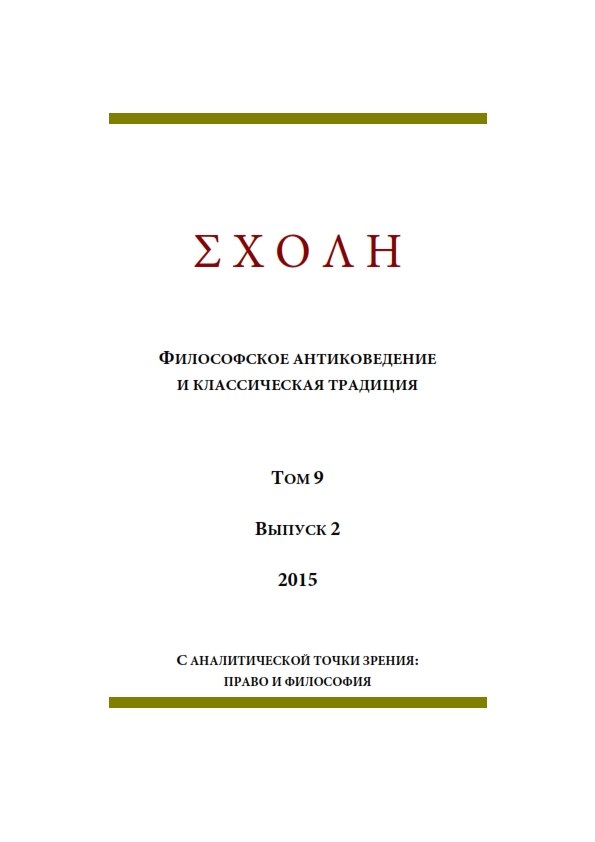АРИАНСКИЕ СПОРЫ ВТОРОЙ ПОЛОВИНЫ IV В.: НАЧАЛО ПОЛЕМИКИ ОБ УНИВЕРСАЛИЯХ В ВИЗАНТИЙСКОЙ БОГОСЛОВСКО-ФИЛОСОФСКОЙ МЫСЛИ И ЕГО КОНТЕКСТ
THE ARIAN CONTROVERSY OF THE SECOND HALF OF THE FOURTH CENTURY: THE BEGINNING OF THE DEBATE ON THE UNIVERSALS IN BYZANTINE THEOLOGICAL AND PHILOSOPHICAL
THOUGHT, AND ITS CONTEXT. PART I. THE TOPIC OF UNIVERSALS IN THE ARIAN CONTROVERSY OF THE SECOND HALF OF THE FOURTH CENTURY AND ITS HISTORICAL CONTEXT
Author(s): Dmitry BiryukovSubject(s): Metaphysics, Philosophy of Middle Ages, Philosophy of Religion, Eastern Orthodoxy
Published by: Новосибирский государственный университет
Keywords: universals; patristic philosophy; hierarchy of natural beings; genera-species dividing; consubstantiality; the Arian debates;
Summary/Abstract: The doctrine of consubstantiality from Basil of Caesarea’s “Against Eunomius”, written as a reaction to the Apology of Eunomius originated a controversy over universals in the second half of the fourth century. This doctrine implies understanding of consubstantiality in the “horizontal” sense as commonness between the Persons of the Trinity, the same way as species are common to the constituent individuals. Using the fragments of Eunomius’ reply to the conception of Basil in Apology for Apology, preserved in Gregory of Nyssa, I demonstrate that in his attempt to refute the applicability of the notion of consubstantiality to God the Father and the Son, Eunomius elaborated his own doctrine of commonness: the higher we go up the hierarchy of beings, the lesser the horizontal commonness in the nature of individual beings we see.
Journal: ΣΧΟΛΗ. Философское антиковедение и классическая традиция
- Issue Year: IX/2015
- Issue No: 2
- Page Range: 339-349
- Page Count: 11
- Language: Russian

